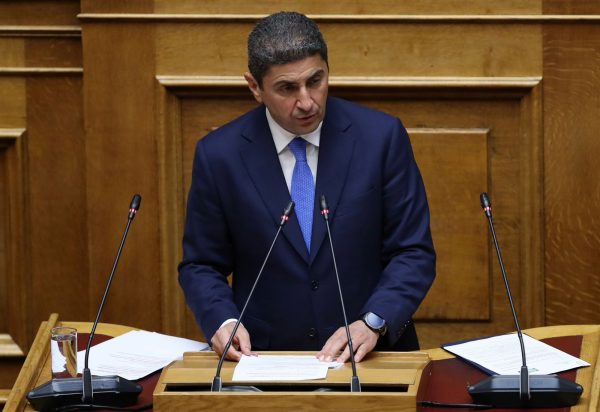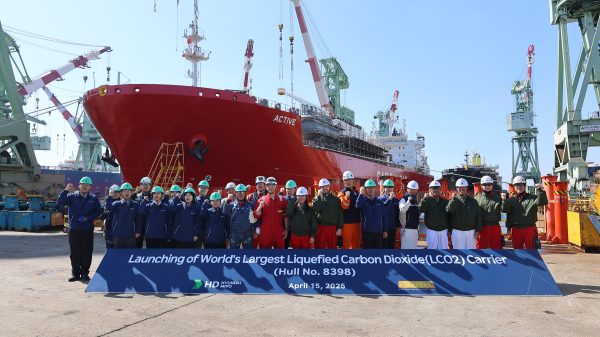
“Amidst the multiple crises we have experienced in recent years, climate change is perhaps the most important threat to the sustainability of our societies and is emerging as one of the dominant challenges worldwide.”
This was stated by the governor of the Bank of Greece, Yannis Stournaras, in the presentation of the The Foundation for Economic & Industrial Research (IOBE) study “Adaptation to climate change: Challenges and prospects for the Greek economy“.
“According to the recent assessment report of the Intergovernmental Panel on Climate Change (IPCC), the planet will be called upon to face significant climate risks even within an optimistic scenario of reducing greenhouse gas emissions,” said the commander of TtE. “Consequently, the need for early action, beyond the level of climate change mitigation and at the level of adaptation to that change, becomes imperative.”
Need to increase funding
“Although states are making progress on their mitigation actions, efforts remain insufficient and funding for the green transition needs to be significantly increased to meet the goals of the Paris Agreement. In addition, it is a common finding, confirmed by a recent relevant UN study, that financing is mainly oriented towards mitigation and less towards adaptation.”
“Regarding the role of central banks in addressing the climate crisis, although the primary responsibility for taking action and meeting targets rests with governments, central banks have an active role, always within the limits of their mandate,” noted Giannis Stournaras.
“Indeed, the European Central Bank included the issues of climate change and sustainability in the last review of its strategy and from July 2021 it is implementing a comprehensive action plan, which extends among other things to matters of monetary policy, supervision of the financial system but also in its operational functions”.
The actions of BoG
“As far as the Bank of Greece is concerned, we are one of the first, if not the first central bank in the world to deal systematically, since 2009, with issues related to climate and sustainability. The interdisciplinary Committee for the Study of the Effects of Climate Change (EMEKA), with distinguished scientists from various fields, has implemented research projects in a wide range of fields. The Commission’s flagship study, “The environmental, economic and social impacts of climate change in Greece” of 2011, formed the basis of the design of the National Strategy for Adaptation to Climate Change in 2015. The National Strategy, which EMEKA drew up in cooperation with the Ministry of Environment and Energy, was the first step of a continuous and dynamic process that continues to this day, through the eight-year Adaptive Greece program, under the coordination of the Ministry of Environment and Energy.
In addition, the Bank of Greece is the first central bank worldwide to subscribe to the Principles of Responsible Banking of the UNEP FI initiative of the United Nations. These principles define the criteria for responsible and sustainable banking, through the holistic assessment of the risks and opportunities arising from the banks’ activities.
»In 2021, we created the Climate Change and Sustainability Center at the Bank of Greece and on the occasion of the 26th Conference of the Parties to the UN Convention on Climate Change (COP26), we made public a series of commitments, which concern almost the entire range of our activities.
»At the same time, we are continuing our contribution to climate change research through the action of EMECA and the Adaptive Greece project. The study presented today is a project of the Foundation for Economic & Industrial Research (IOBE) and its support is part of our contribution to the issues of adaptation”, noted the governor of the Bank of Greece, who in closing thanked “IOBE and the authors of the study for their valuable contribution”, hoping that “the publication of the study and today’s debate will make a substantial contribution both to the dialogue on adaptation issues and to the necessary financing of climate action”.
Latest News

German Ambassador to Greece Talks Ukraine, Rise of Far Right & Tariffs at Delphi Economic Forum X
Commenting on the political developments in his country, the German Ambassador stressed that it was clear the rapid formation of a new government was imperative, as the expectations across Europe showed.

Athens to Return Confiscated License Plates Ahead of Easter Holiday
Cases involving court orders will also be excluded from this measure.

Servicers: How More Properties Could Enter the Greek Market
Buying or renting a home is out of reach for many in Greece. Servicers propose faster processes and incentives to boost property supply and ease the housing crisis.

Greek Easter 2025: Price Hikes on Lamb, Eggs & Sweets
According to the Greek Consumers’ Institute, hosting an Easter dinner for eight now costs approximately €361.95 — an increase of €11 compared to 2024.

FM Gerapetritis Calls for Unified EU Response to Global Crises at EU Council
"Europe is navigating through unprecedented crises — wars, humanitarian disasters, climate emergencies," he stated.

Holy Week Store Hours in Greece
Retail stores across Greece are now operating on extended holiday hours for Holy Week, following their Sunday opening on April 13. The move aims to accommodate consumers ahead of Easter, but merchants remain cautious amid sluggish market activity.

Green Getaway Ideas for Easter 2025 in Greece
Celebrate Easter 2025 in Greece the sustainable way with eco-farms, car-free islands, and family-friendly getaways rooted in nature and tradition.

Civil Protection Minister Details Summer Firefighting Plans at Delphi Forum
At the 10th Delphi Economic Forum, Minister of Climate Crisis and Civil Protection Yiannis Kefalogiannis discussed Greece's plans for the upcoming fire season.

How Shops and Markets Will Operate During Easter Holy Week
The Easter holiday schedule has been in effect since April 10, with retail stores open Palm Sunday, and most supermarkets also operating to meet consumer demand for Easter shopping

Why Is the French Aircraft Carrier Charles De Gaulle in Piraeus?
Docking in Piraeus after a four-month deployment in the Indo-Pacific region, the admiral of the aircraft carrier the Charles de Gaulle says, "Greece is our best partner in the Mediterranean."








































 Αριθμός Πιστοποίησης
Αριθμός Πιστοποίησης